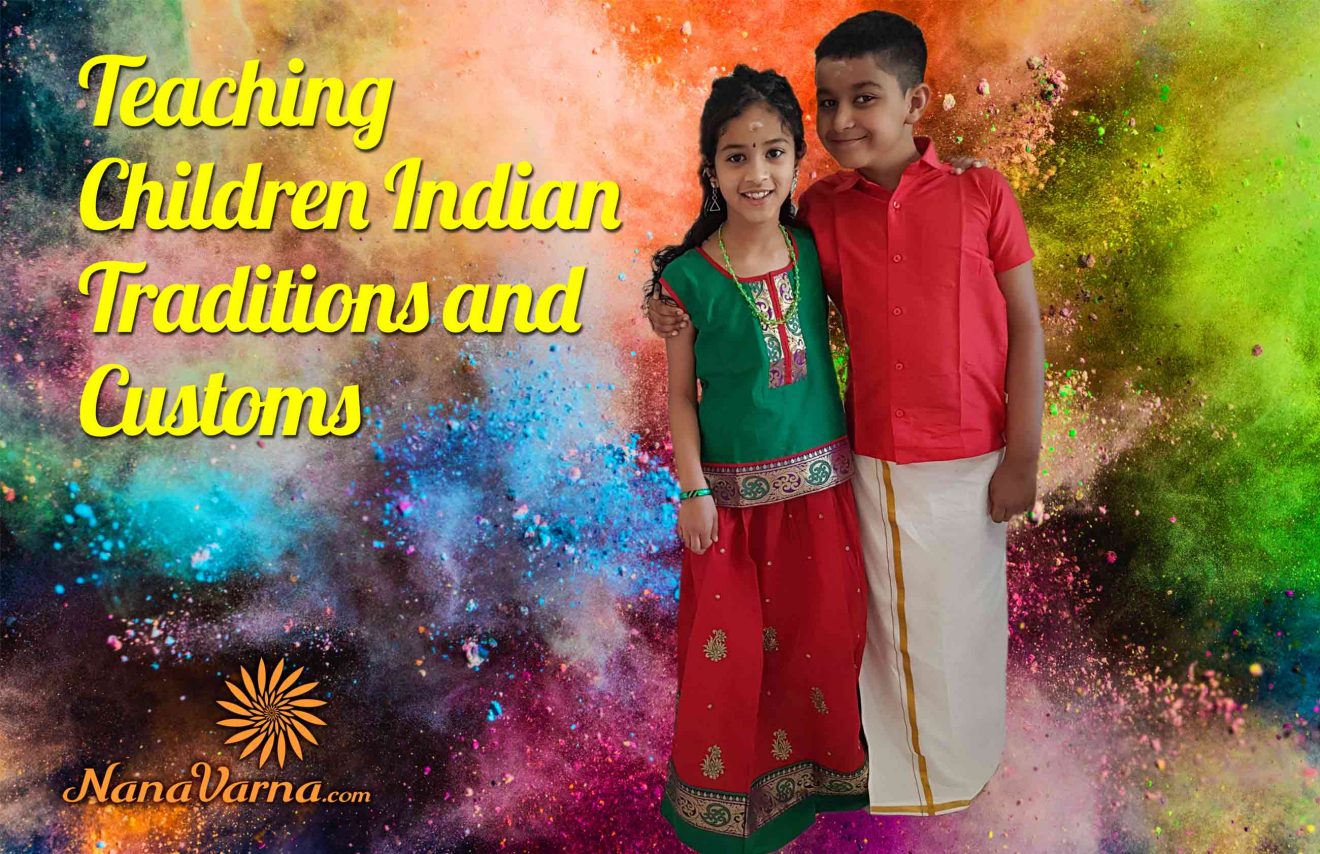Customs and festivals,
Traditions and celebrations,
Are we made of them?
Or are they made of us?
Since the birth of a child
It’s the customs that bound us
Till we say goodbye
It’s only the traditions that make us.
The need for Indian Traditions and Customs and its importance
Living as a social animal in society, have you ever wondered why some of the practices or customs become part of our lives? Why do we follow some traditions without even questioning? Do we follow it blindly for the respect of our elders? Or is there really any scientific or valid approach and reasoning behind it?
India is a family bounded society and we celebrate each and every occasion starting from the birth of child, birthdays, festivals, the entry in teenage, the marriageable age, being a parent till death. India is diverse and so are its cultures and traditions. But the question arises as to why they are important or needed?
Traditions and cultures help us to discover our family, faith, and values. Indian culture as it is is the oldest civilisation. Visit any place or temple or art museum or fort, you will hear loads of stories related to why and how of the place; what marked the beginning of everything and why do people still follow the said practices.
Examples can be shared like, finding a mate for an arranged marriage, a valued tradition in Indian families which they proudly follow. It may be matchmaking, meetings, agreement, promises, engagements, parties, shopping, marriage rituals, prayers, shlokas, or rituals meant for each and every occasion. Be it the tradition of joint families or celebrating together, India always has a reason for celebration. Whether it is our custom of Namaste or treating guests humbly, or Holy New Year or harvest festivals, or depicting the history of temples or religious symbols, Indian Traditions and Customs are unique in every way.
We all know that Indian Traditions and Customs or even culture is diverse and distinctive. Religion, etiquette, clothing, food, epics, customs, dance, art, or languages are all celebrated in India. We, being the mentors and parents play an important role in how we present the value of Indian traditions and customs as well as cultural values to our kids to tell them its importance and reasons to follow them in a specific matter. This will help build their faith and belief in the system. It’s our rich legacy that we are proud of and when we inherit and pass it to future generations there is a strong possibility of the children in taking our valuable culture.
Some simple ways to teach children about Indian Traditions and Customs can be as follows-
1. Teach Children the value of Indian Traditions and Customs by following them
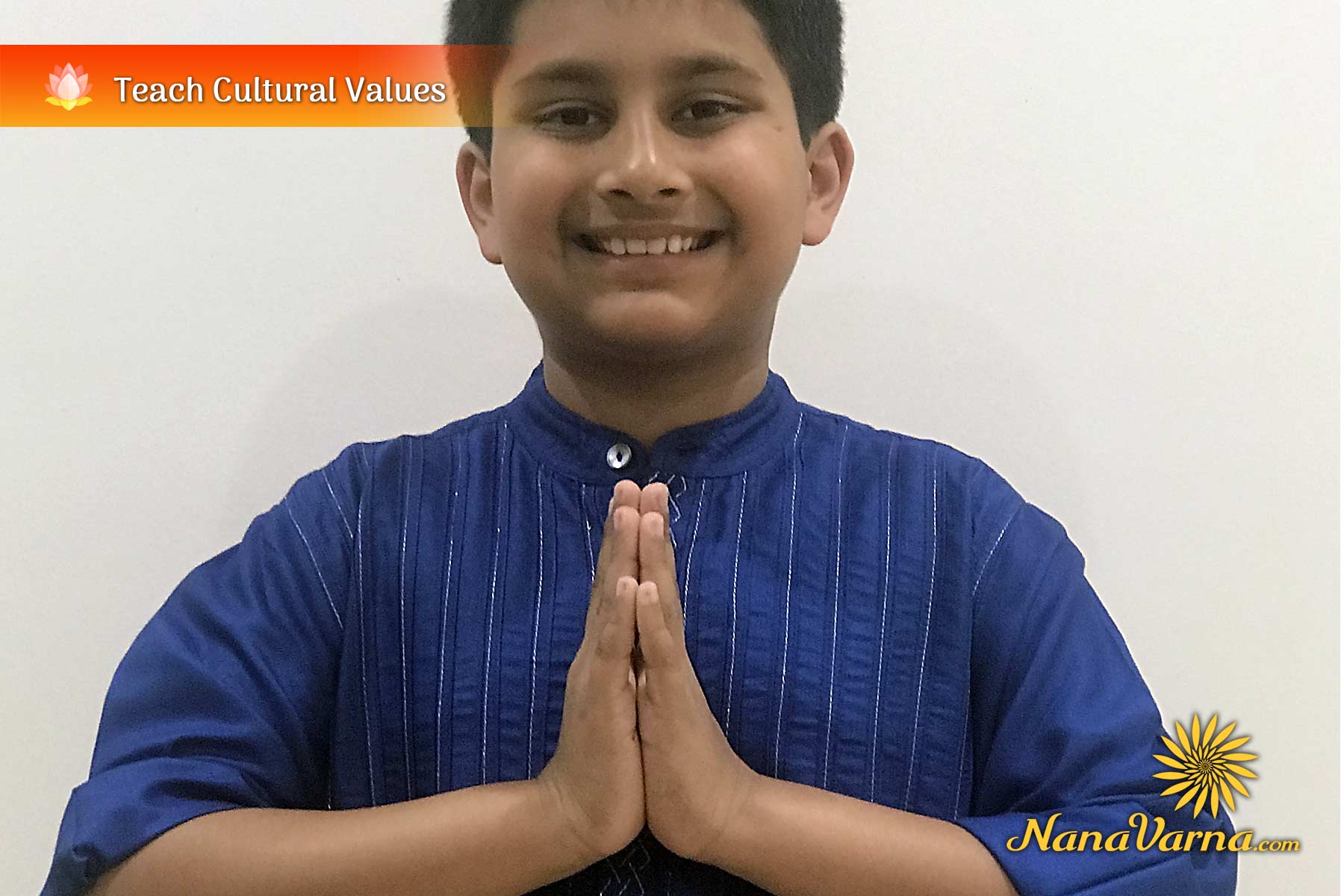 Kids follow what they observe. So, it is most important that we practice first, before teaching them the need of gelling with our culture. Give them scientific reasons behind them and explain their importance. Share examples with them to support your saying as kids understand things better when illustrated. It also builds their level of confidence in accepting things and theories.
Kids follow what they observe. So, it is most important that we practice first, before teaching them the need of gelling with our culture. Give them scientific reasons behind them and explain their importance. Share examples with them to support your saying as kids understand things better when illustrated. It also builds their level of confidence in accepting things and theories.
2. Encourage cultural learning through arts, crafts and book readings
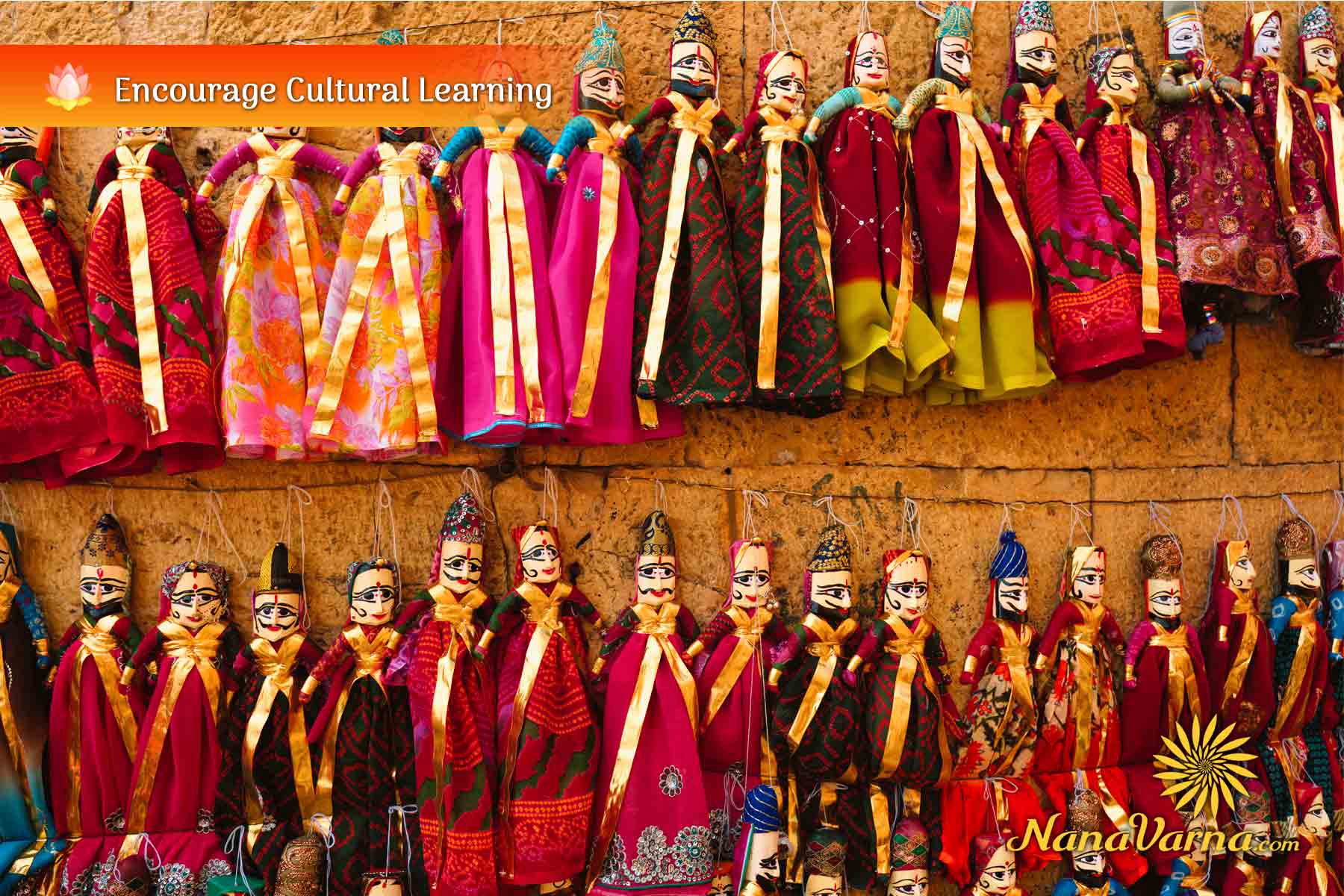 The more the knowledge is imparted in ways of art, craft, and reading the better will they learn. Celebrating diversity through reading is a special way to know more in-depth about history/ past and present as it gives a clear picture to kids.
The more the knowledge is imparted in ways of art, craft, and reading the better will they learn. Celebrating diversity through reading is a special way to know more in-depth about history/ past and present as it gives a clear picture to kids.
3. Narrate stories about Indian Traditions and Customs
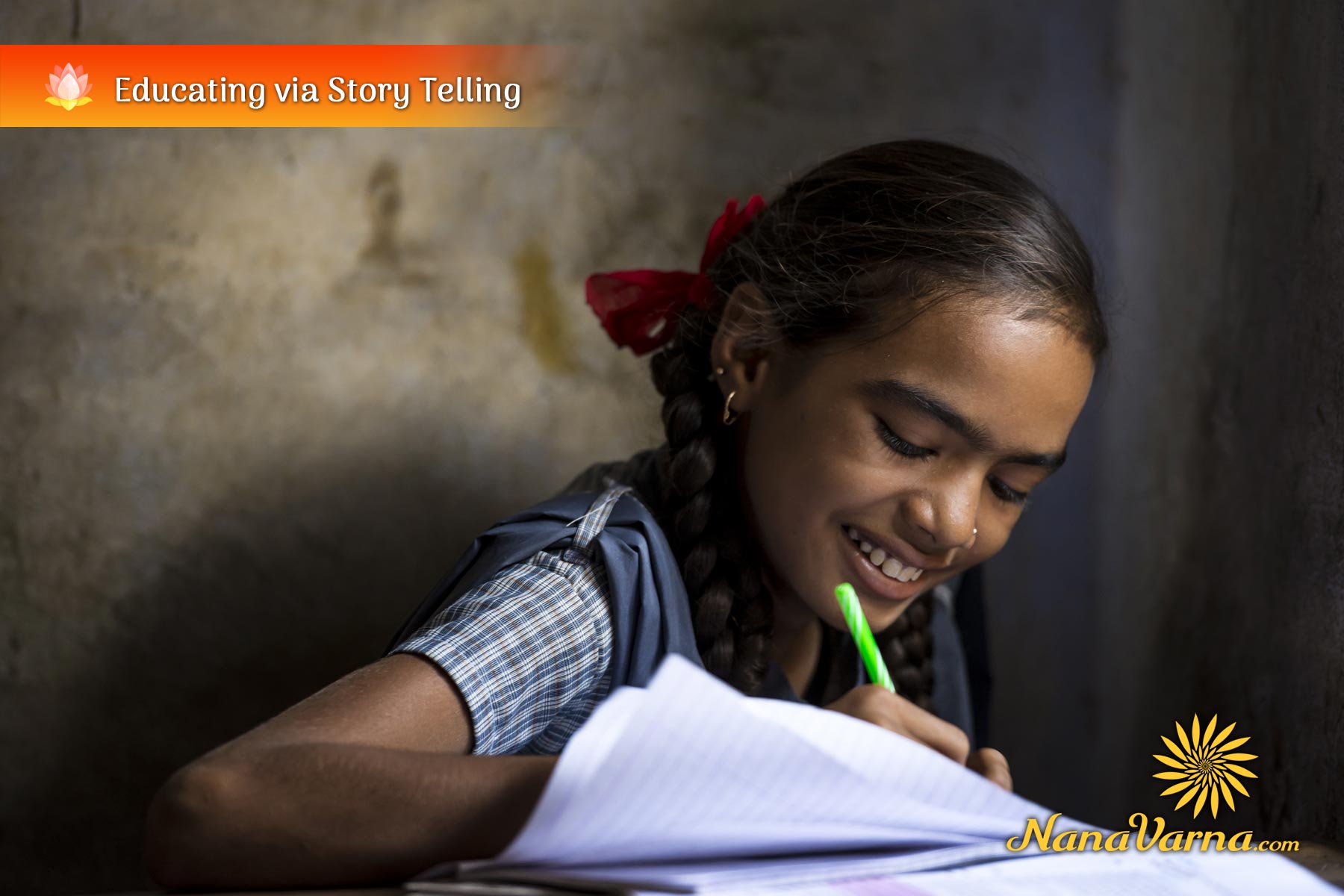 The children can be told stories and shown plays that showcase the Diversity of Indian Culture, promoting Indian Values. Having storytelling sessions via digital media or shows will also help.
The children can be told stories and shown plays that showcase the Diversity of Indian Culture, promoting Indian Values. Having storytelling sessions via digital media or shows will also help.
4. Educate the Indian Values
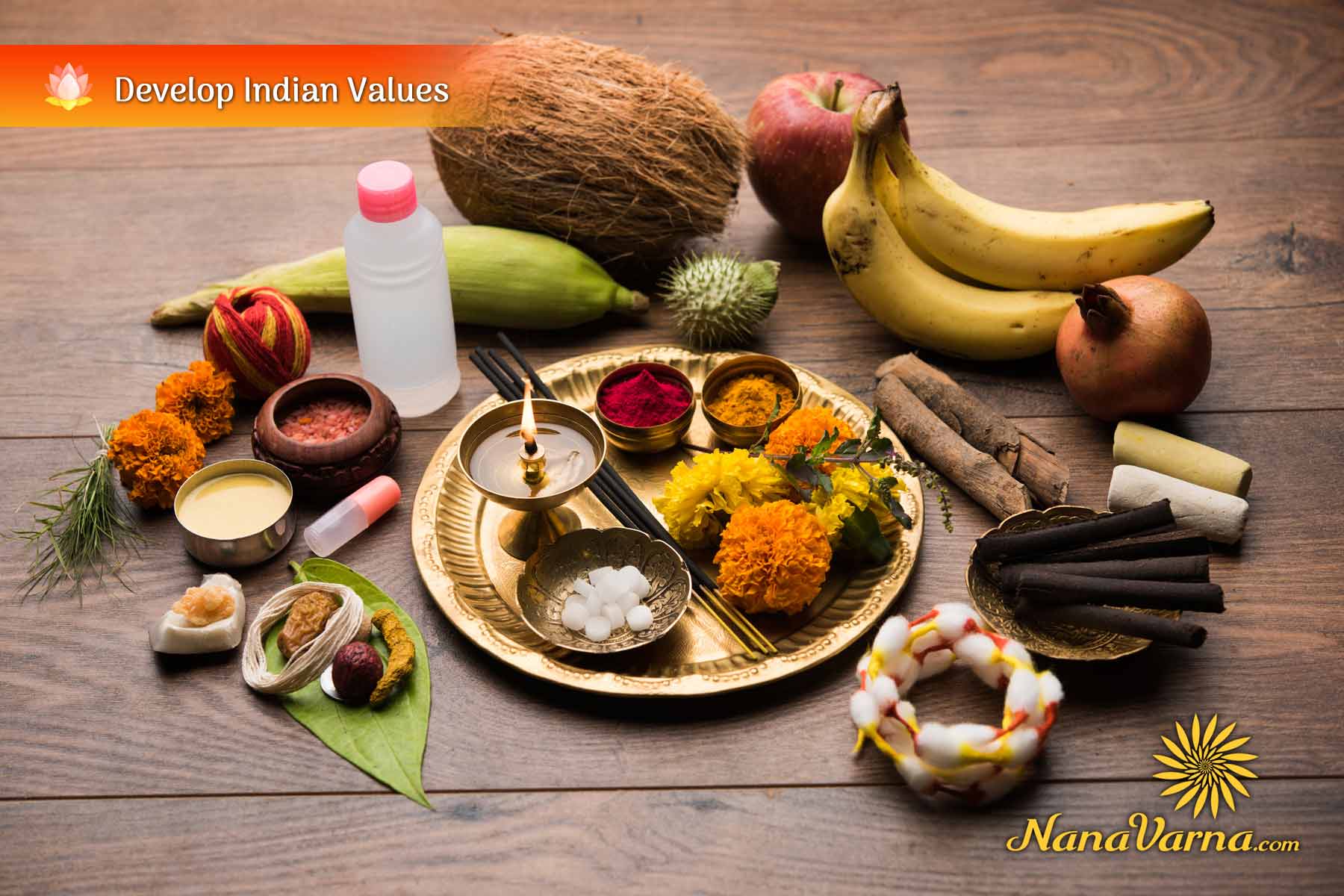 Teach children to respect the Indian culture and to be proud of it. Once they attain faith in our culture, it can be easily passed on to the next generation. As mentors, we can teach the Indian Values and etiquette and make them follow our culture.
Teach children to respect the Indian culture and to be proud of it. Once they attain faith in our culture, it can be easily passed on to the next generation. As mentors, we can teach the Indian Values and etiquette and make them follow our culture.
5. Show Children the diversity of Indian culture
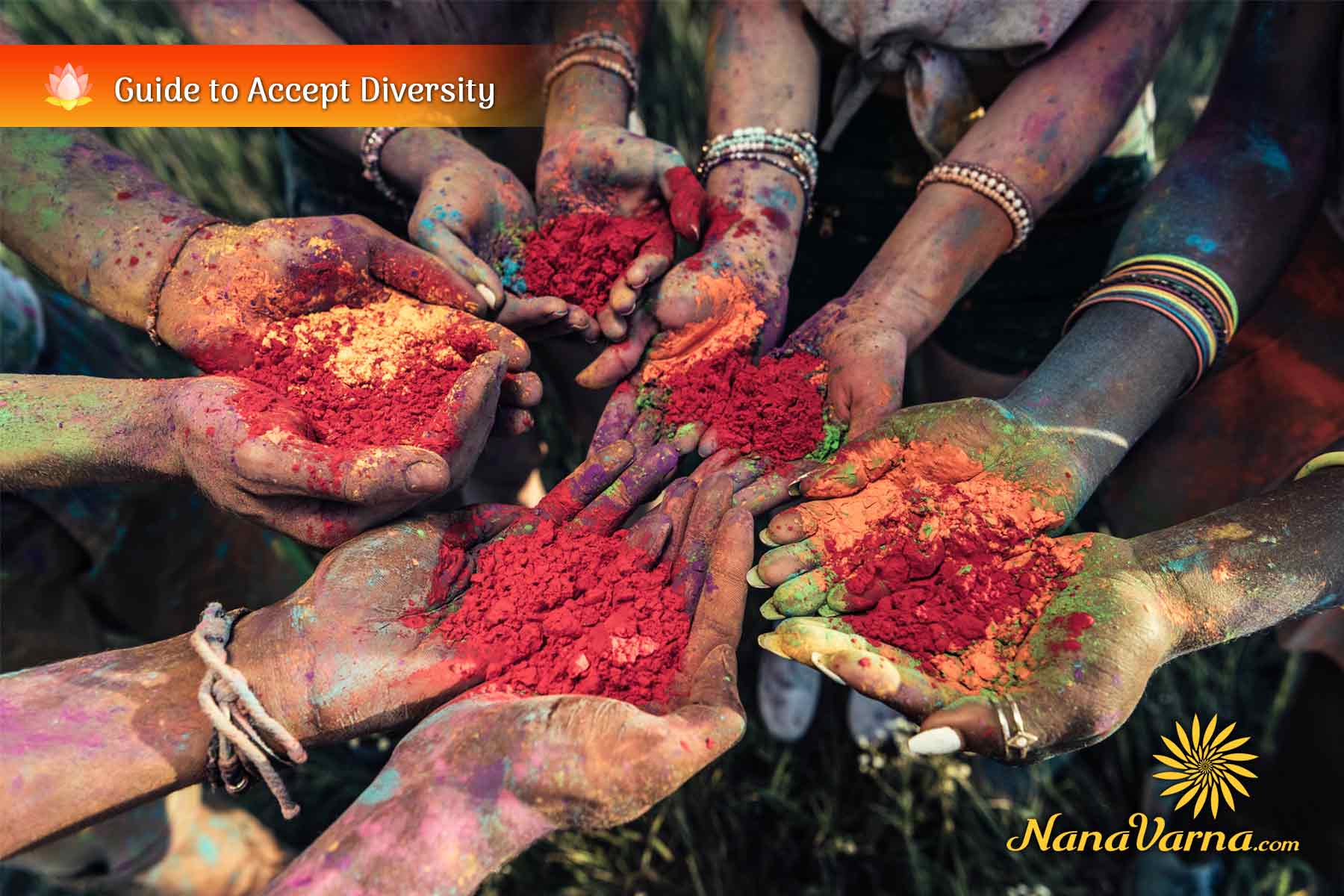 Show and tell them how different states follow varied customs and traditions and what are the reasons and ways to celebrate it. Unity in diversity is our main motto and by helping kids understand its essence will influence them to stay connected with our treasured culture.
Show and tell them how different states follow varied customs and traditions and what are the reasons and ways to celebrate it. Unity in diversity is our main motto and by helping kids understand its essence will influence them to stay connected with our treasured culture.
6. Cultural programs and art forms
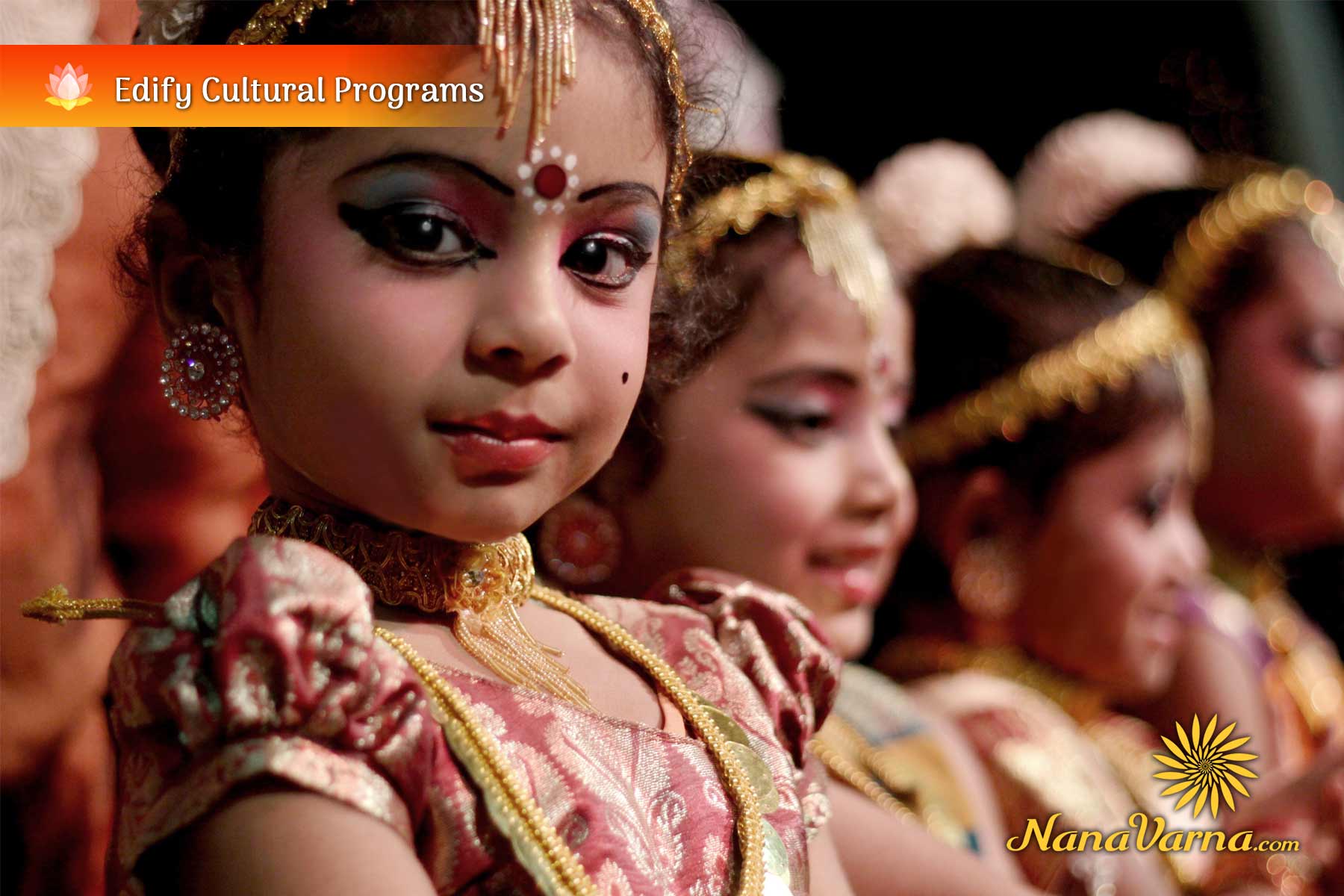 Cultural programs and art shows are a great way to understand a particular culture. When Children attend such programs consisting of local art, music, and dance they get a glimpse and exposure of what the art form is about and how the state has presented it to us.
Cultural programs and art shows are a great way to understand a particular culture. When Children attend such programs consisting of local art, music, and dance they get a glimpse and exposure of what the art form is about and how the state has presented it to us.
7. Encourage Indian food and clothing
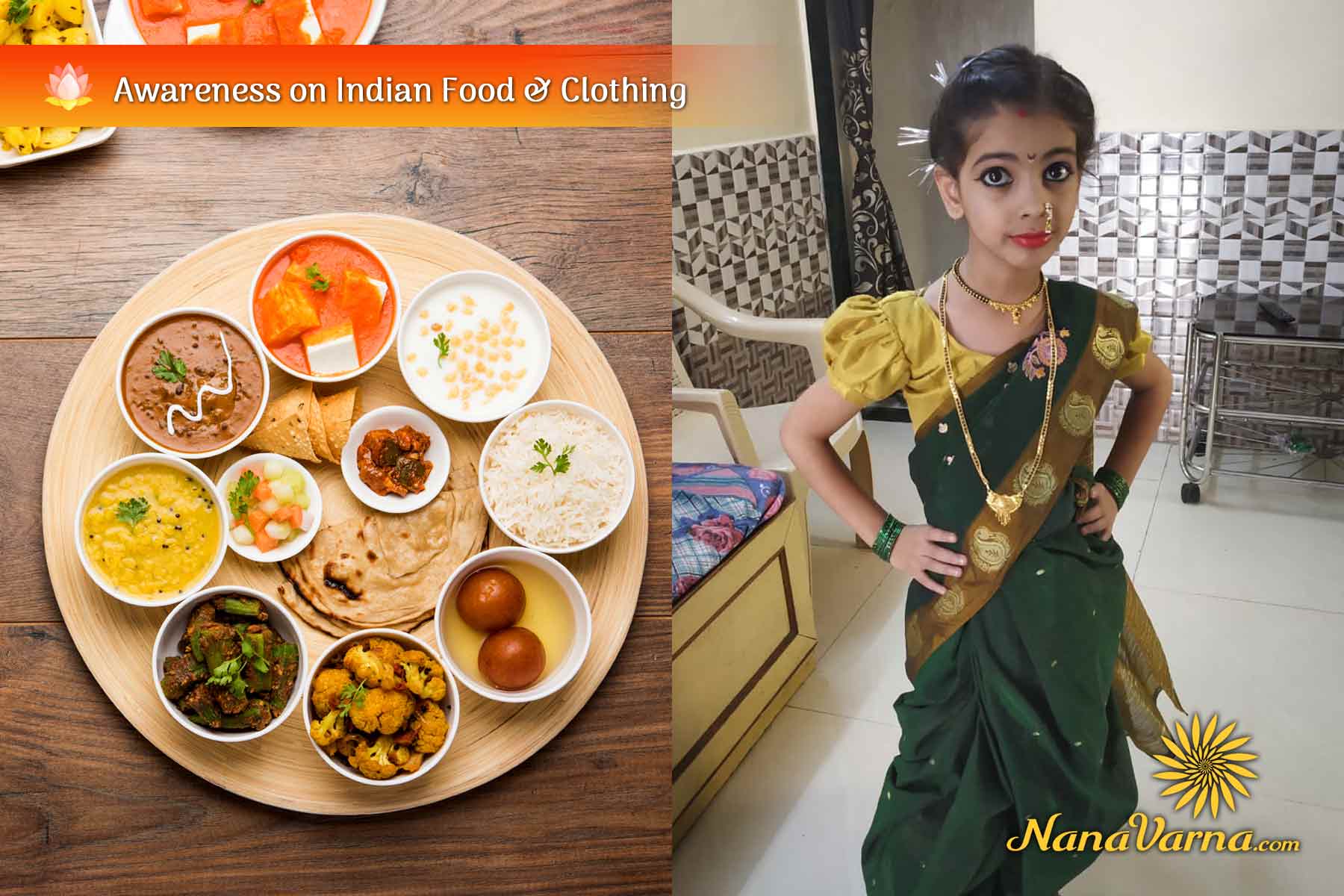 Be it for festivals or everyday wear, we should promote Indian wear. This will make kids more connected and get the feel of it. Weekend get together with Indian based themes will kindle their interest in learning our culture. Added to this, it shall encourage them to show respect for Indian clothing and food habits.
Be it for festivals or everyday wear, we should promote Indian wear. This will make kids more connected and get the feel of it. Weekend get together with Indian based themes will kindle their interest in learning our culture. Added to this, it shall encourage them to show respect for Indian clothing and food habits.
8. Celebrate festivals together
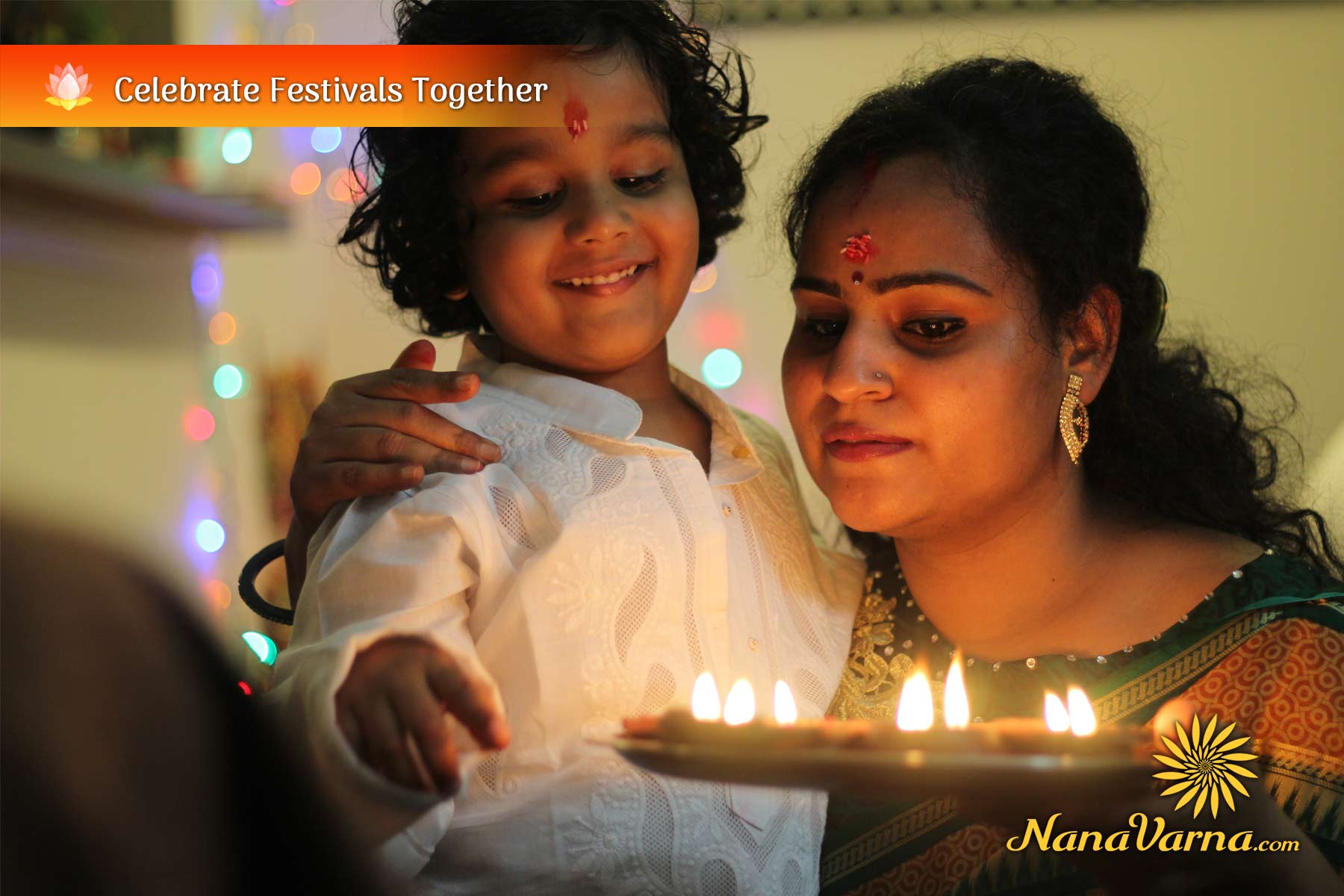 Celebrate festivals along with your children and give them the knowledge of how and from where did festivals came into being and why we celebrate them. Also, inspire them to celebrate festivals from different cultures as well which aids them in gaining more knowledge about the festivals.
Celebrate festivals along with your children and give them the knowledge of how and from where did festivals came into being and why we celebrate them. Also, inspire them to celebrate festivals from different cultures as well which aids them in gaining more knowledge about the festivals.
9. Motivate them to stick to Indian values
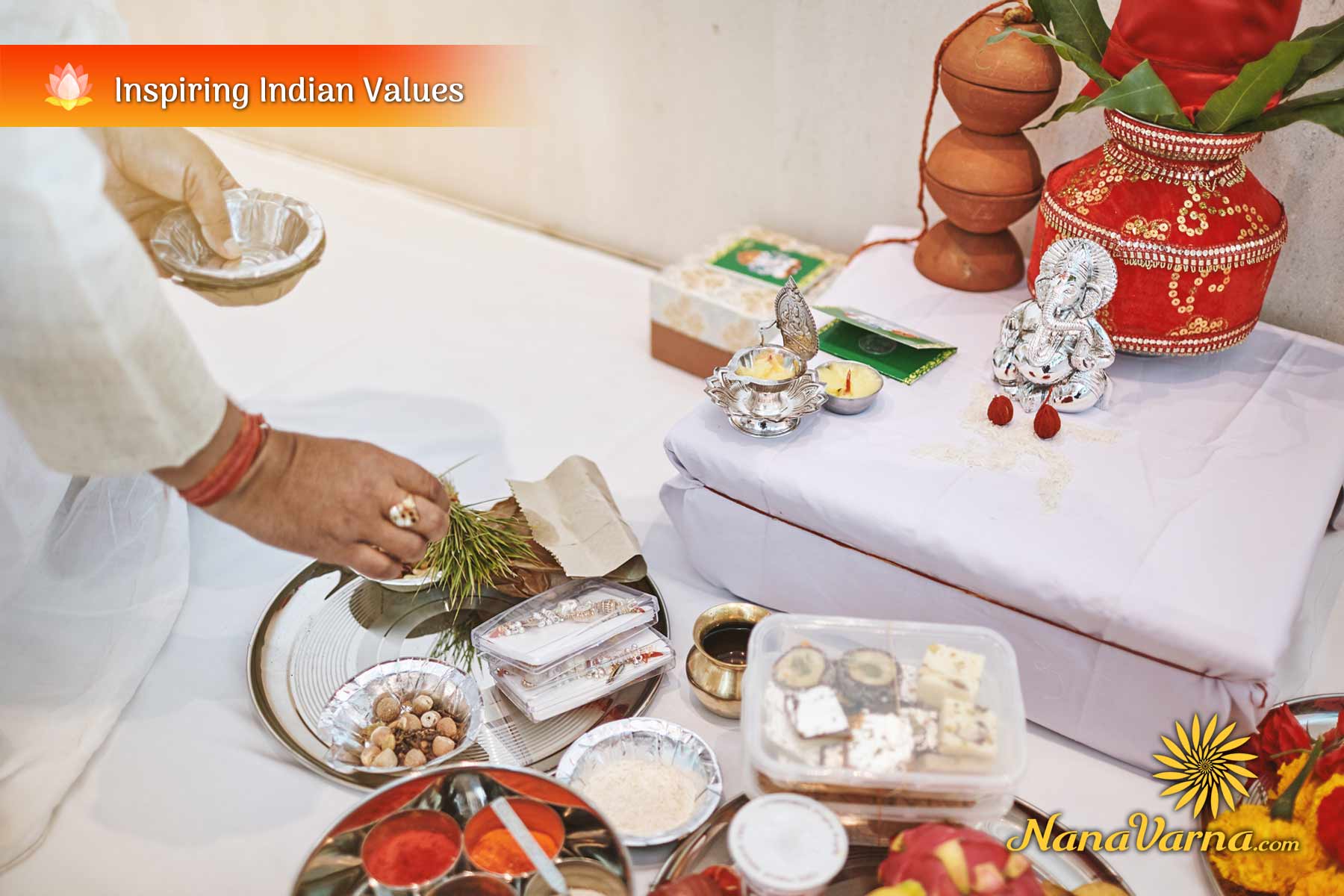 We must teach kids never to compromise on Indian values, in any situation. This paves the way in developing a deep respect for our cultural values. Respecting the elders and showing good behaviour, greetings, etc. should be taught since childhood so that children develop these habits as a routine.
We must teach kids never to compromise on Indian values, in any situation. This paves the way in developing a deep respect for our cultural values. Respecting the elders and showing good behaviour, greetings, etc. should be taught since childhood so that children develop these habits as a routine.
10. Travel to different Indian places
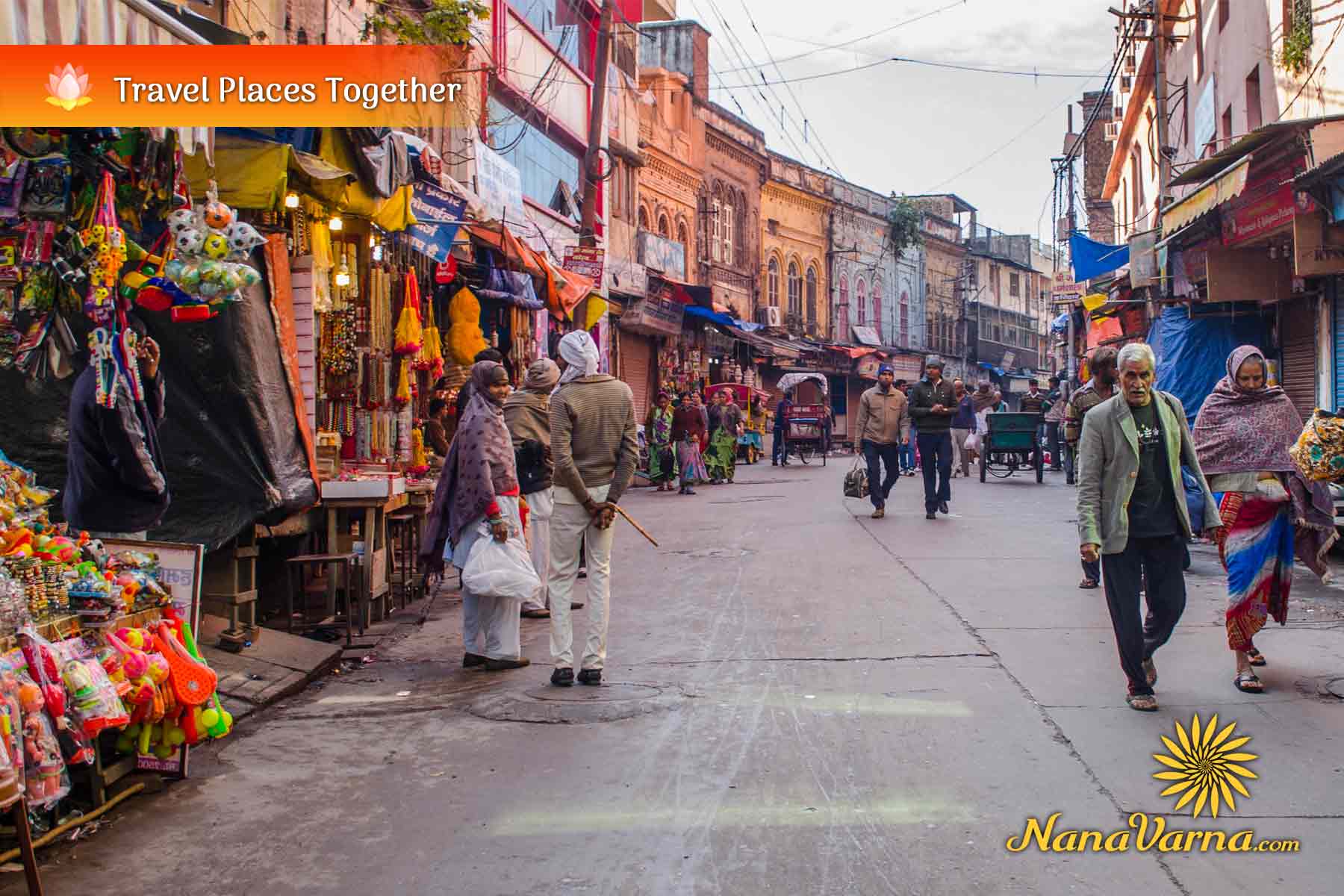 Travel and visit different Indian cities with your children to explore and learn about cultures and traditions being followed in varied parts of the country. We need to tell them how people from foreign lands, especially visit India to learn and understand our diverse and rich culture.
Travel and visit different Indian cities with your children to explore and learn about cultures and traditions being followed in varied parts of the country. We need to tell them how people from foreign lands, especially visit India to learn and understand our diverse and rich culture.
We, in India, have many beautiful practices like saying Namaskar with folded hands, honouring guests, or saying Atithi Devo Bhava. Indian food, dances, epics, languages, ethnic wear, marriage system and rituals, the temples and beliefs, eating with hands, martial arts, and many more are special attributes to our sole Indian Culture.
With time, Indian Traditions and Customs have undergone a lot of changes that count as a reason for its diversity and variety. Globalisation, technology, media have a chief effect on Indian Traditions and Customs. There is a major change or transformation lately as ideas and views are studied and exchanged. People travel and explore themselves.
The lifestyle changes have also impacted the way we live, celebrate, or even standard of living. I agree that the Indian Traditions and Customs were questioned and even lost a bit of hold, but we still are intact. The youth today, even if enjoying the impact of westernization have seen that Indian values have also travelled and been globalised. The simple habit of Namaste or celebrating Diwali or Holi is now at a global level. Indian Traditions and Customs have a deep significance on a particular location and thus children, for sure get that exposure of uniqueness from their family values. The cultural values of the younger generation are still connected to the older generation. For instance, it can be helping the needy or respecting elders, we still believe in our practices.
Development in children is an interactive process and when we guide them by imbibing the true values of our Indian Culture, they will undoubtedly conserve and preserve them. Parents and guardians play an important role in mould1ing children’s behaviour and their thinking patterns. The cultural differences have implications on how children behave or interact. Customs and cultures have social, physical, cognitive as well as an emotional impact on children’s development. We, being guardians have a very crucial role in framing it and ensuring that there is proper importance to our values and customs and is prevalent in our society.
Let’s take an initiative to spread the awareness on Indian Customs and Traditions to shape a culturally bound India!














